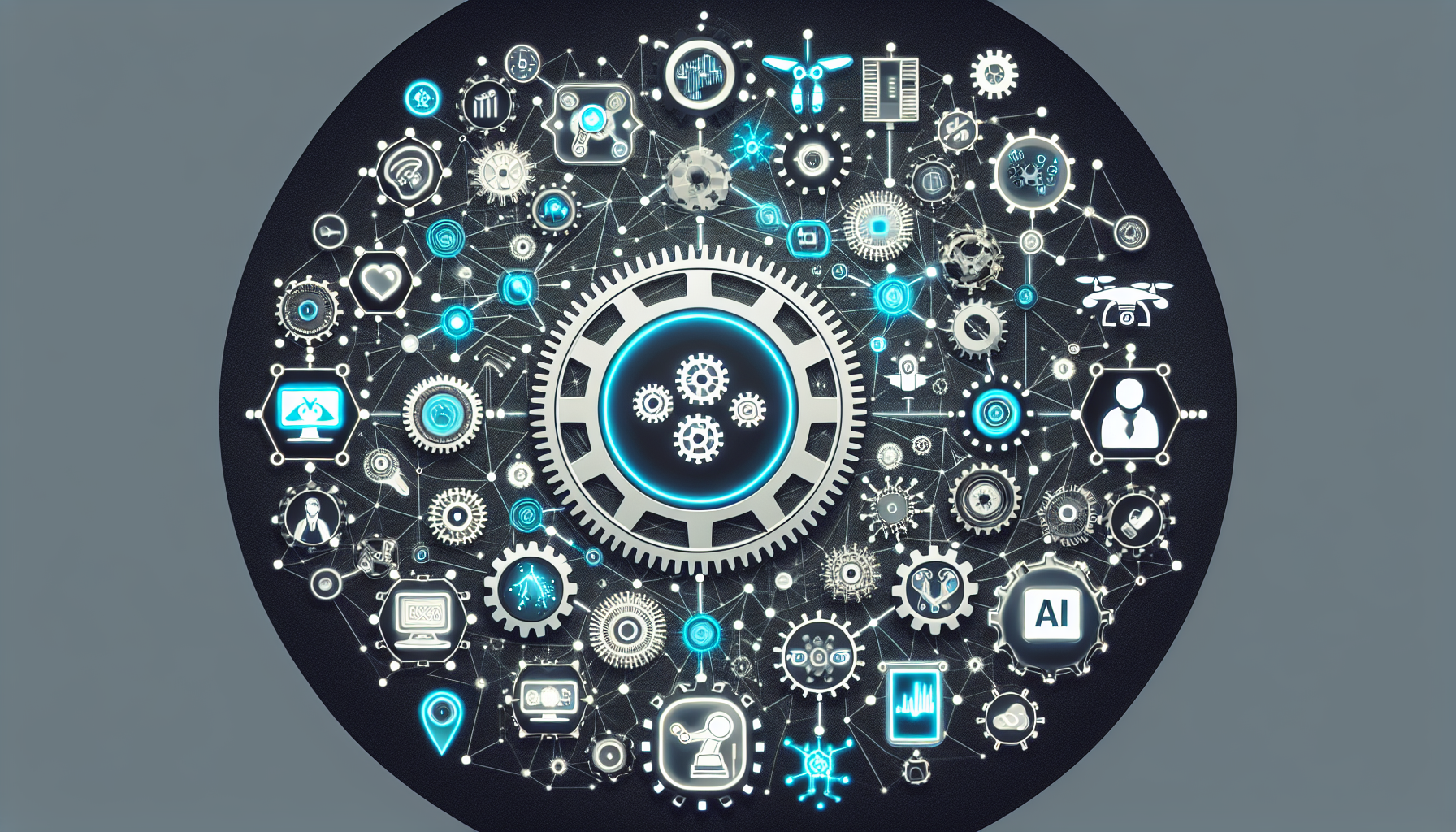The landscape of work is undergoing a transformational shift driven by advancements in artificial intelligence (AI) and automation. These technologies are redefining traditional roles, enhancing productivity, and introducing new ways of working across various industries. As companies embrace these innovations, understanding their impact is essential for organizations, employees, and job seekers alike.
### The Role of AI in Transforming Work
AI refers to systems capable of performing tasks that typically require human intelligence, such as learning, reasoning, and decision-making. By automating repetitive functions, AI frees human workers to focus on more complex, creative tasks. Major sectors like healthcare, finance, manufacturing, and retail are experiencing substantial benefits from AI integration.
#### AI in Healthcare
In healthcare, AI is revolutionizing patient diagnosis and treatment. Machine learning algorithms analyze vast amounts of medical data, enabling practitioners to identify diseases earlier and more accurately. For example, AI applications in radiology help detect anomalies in imaging scans much faster than human radiologists. This not only improves patient outcomes but also enhances operational efficiency within hospitals. Moreover, AI-powered chatbots are providing 24/7 support, managing patient queries, and scheduling appointments, thus streamlining administrative tasks.
#### AI in Finance
The financial sector has embraced AI and automation to enhance customer experiences and operational efficiency. AI algorithms sift through millions of transactions to detect fraudulent activities in real time, vastly improving security. Robo-advisors are increasingly managing investments, offering personalized financial advice based on data analytics. This democratization of financial services allows individuals to access high-quality investment strategies that were previously only available to wealthy clients.
### How Automation is Shaping Industries
Automation extends beyond AI; it encompasses technologies like robotics and software automation that streamline processes. Industries such as manufacturing and retail are at the forefront of implementing automation technologies.
#### Automation in Manufacturing
Manufacturers are leveraging automation to optimize production lines and reduce costs. Robotics and automated machinery can perform specific tasks with precise accuracy and speed, leading to higher quality outputs and minimized waste. Furthermore, the rise of collaborative robots (cobots) enhances human-robot teamwork, allowing production teams to focus on higher-level tasks while robots handle repetitive functions. This paradigm shift enhances efficiency and boosts competitiveness in a global market.
#### Automation in Retail
The retail sector is experiencing a technological overhaul thanks to automation. Automated checkout systems and inventory management solutions increase efficiency while decreasing operational costs. AI refers to customer behaviors through data analytics, enabling retailers to tailor marketing strategies more effectively. Chatbots and virtual assistants offer personalized shopping experiences, improving customer engagement and satisfaction. As e-commerce continues to rise, automation ensures that retailers can keep pace with demand without sacrificing quality or service.
### The Impact on Employment
The integration of AI and automation raises significant questions about the future of employment. While certain job functions may become obsolete, these technologies will also create new employment opportunities, particularly in tech-driven fields.
#### Job Displacement vs. Job Creation
While roles in areas like data entry and assembly line work may diminish, the demand for skilled professionals in AI development, data analysis, and machine maintenance is surging. Major industries will require workers who can design, implement, and manage AI-driven solutions. Reskilling and upskilling initiatives are critical to helping current employees transition to these new roles, ensuring that they remain relevant in the evolving job market.
#### The Importance of Continuous Learning
To prepare for changes in the workforce, continuous learning must become an integral part of professional development. Online courses, workshops, and certifications in AI, machine learning, data science, and other related fields are essential. Employers should foster a culture of learning and provide resources for employees to upgrade their skills. By prioritizing development, companies not only retain talent but also improve overall productivity.
### The Rise of Remote Work
The COVID-19 pandemic accelerated the adoption of remote work, and AI and automation will further shape how work is conducted in this environment. Virtual collaboration tools, enhanced by AI, facilitate teamwork across geographical boundaries. Project management software and AI-driven analytics help teams track progress and make data-driven decisions from anywhere.
#### The Shift in Work Culture
As remote work becomes standard, the emphasis on flexibility and work-life balance increases. AI tools enable HR departments to monitor employee engagement and well-being, ensuring a healthy work culture remotely. This shift empowers employees by allowing them to manage their time effectively, resulting in higher job satisfaction and productivity.
### Ethical Considerations
The rise of AI and automation raises important ethical questions. Issues surrounding data privacy, bias in algorithms, and job displacement require careful consideration and dialogue. Companies must develop transparent policies regarding their use of AI to ensure fairness and accountability in decision-making processes.
#### The Need for Regulation
Governments and regulatory bodies have a crucial role to play in overseeing AI and automation deployment. Establishing norms and guidelines can protect workers’ rights and privacy while fostering innovation. Collaboration between industry leaders and policymakers is essential to create frameworks that encourage responsible AI use, balancing technological advancement with social responsibility.
### Conclusion
The future of work is undoubtedly influenced by AI and automation, shaping industries and transforming the employment landscape. Adapting to these changes will require a commitment to continuous learning and a proactive approach to workforce development. As organizations continue to embrace these advanced technologies, understanding and navigating the associated challenges will be vital for success in the new era of work. Adopting AI and automation not only enhances productivity but also sparks innovation, driving industries forward in unprecedented ways. The ability to adapt to this rapidly changing environment will determine the competitiveness and sustainability of organizations globally.


